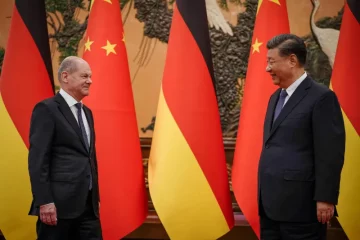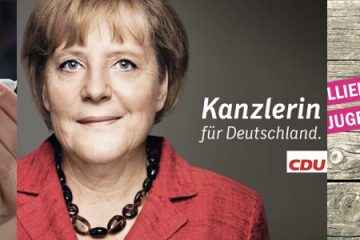
Wandel durch Handel: Germany’s strategic diplomacy vis-à-vis China and Taiwan
Relations between Germany and Taiwan strengthened in 2022, despite Germany’s reluctant acceptance of Beijing’s One China Policy. Meanwhile, bilateral economic ties with both Taiwan and China have sparked discussions about Germany’s foreign policy goals and whether Berlin is reviving the antiquated diplomatic strategy known as Wandel durch Handel (“Change through Trade”) amidst Europe’s growing security vulnerabilities. In June 2023, Germany and the Chinese state-owned firm COSCO signed a contract for the sale of shares in Hamburg’s seaports. Chancellor Olaf Scholz’s visits to Taiwan, once unimaginable , were strategically timed to coincide with the contract. Two months later, Germany established an agreement with TSMC, Taiwan’s largest semiconductor company. Prevailing narratives among policy circles view Wandel durch Handel as a relic from Germany’s regulatory …

A Historical Perspective on the Political Limits of “My Body, My Choice”
In the context of the U.S. Supreme Court repeal of Roe v. Wade, the struggle for access to abortion and reproductive freedom continues. In Germany, abortion remains a criminal act only granted under specific conditions and requirements. Apart from ethical and legal requirements, abortions are hardly mentioned in most medical curricula. There is a shortage of medical practices that perform abortions, especially in rural areas and if there is no “medical or criminological indication”, the procedure is not covered by health insurance, costing between €300 to €600. §218 of the criminal code that criminalises and regulates abortion is a remnant from the imperial penal code of 1871 (only the GDR legalised abortion in 1972). Radical feminists in Germany were at …

A gradual farewell? There will be no three-year transition period in Germany
Angela Merkel’s announcement on Monday to not run again in the 2021 election has initiated a period of transition in German politics. Yet, whether this process will last until the next election, as she suggested, is questionable. German chancellor, Angela Merkel, announced on Monday that she would not be running for a fifth term in office in the next federal election in 2021 and step down as the leader of her party in December. Her statement came less than 24 hour after her Christian Democratic Union party (CDU) had lost more than 10 percent of the votes in the state election of Hesse, marking the party’s worst result in the state since 1966. The election continued an overall downturn in …

What a probable Jamaica coalition means for possible cannabis legalisation in Germany
On September 24th, Germans elected a new parliament. The CDU/CSU won 32.9%, the SPD 20.5%, the AfD 12.6%, the FDP 10.7%, the Green Party 8.9%, Die Linke 9.2%. This outcome, resulting in the presence of six parties in the Bundestag, will complicate the formation of a new governing coalition. The right-wing Alternative für Deutschland (AfD) will enter the German Bundestag for the first time, but is politically shunned by other parties. Die Linke is ideologically too far removed from the Conservatives to ever govern with them. The once proud and mighty German Social Democrats (SPD) have been humbled by the election. In consequence, the Social Democrats have announced their intention to go into opposition. Angela Merkel’s Christian Democrats (CDU/CSU), while …

On the Margins: Meetings to Watch at the Hamburg G20
Summits are not just — or even mostly — about what happens in the formal leaders’ meetings. What happens on the sidelines often has the largest effect on steering the course of international politics. This is the first year that the G20 summit could end up as a failure, advancing little in the way of substantive progress on the global governance agenda, chiefly owing to the group now having to contend with Donald Trump taking America’s seat at the summit table. Trump’s ‘America First’ agenda — typified by its economic protectionism and rejection of the established multilateral order — is entirely antithetical to the G20’s previous commitments to reject protectionism and safeguard the liberal, rules-based, multilateral governance order. This year’s G20 …

The pension problem at the heart of Germany’s envied economy
Germany often encourages much jealous muttering. The country found an easier path than most through the global financial crisis and is now even touted as the world’s best nation (at least according to one survey). Besides stellar engineering and economic efficiency, the German model also stands for social equity. This “social market economy”, however, is increasingly put into question by the looming spectre of old age poverty. On the surface, all is well. Unlike many of its peers, the German pension system is in comparatively sound financial shape. Even though the number of working people per retiree is predicted to halve in the next 40 years, the share of GDP spent on pensions will increase by less than 2%. The …









